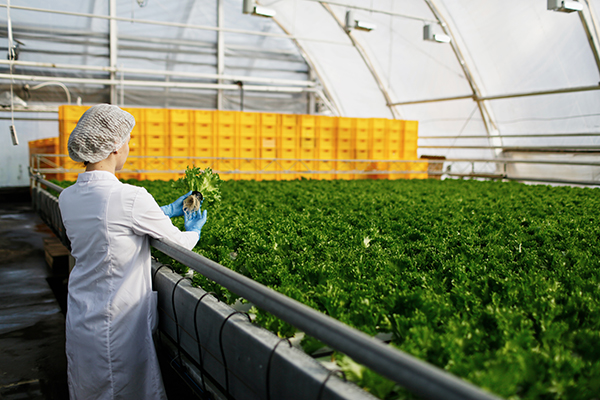Accountability Supports Food Safety Culture
With the low unemployment numbers, and competition for good workers, many managers may choose to look the other way when staff do not complete tasks when and how they should. You may recall the parent who tells the little scamp, I’m going to count to three – one, two, two and a half, two and three quarters, etc. – only to find there is no change in behavior. That little scamp may well end up in juvie because he/she was never held accountable for behavior – the parents always looked the other way just to keep the peace. But a failure to act has unintended consequences, not just for the child, but for others in the family. It is the same in any foodservice operation–lack of consistent adherence to defined and communicated ways of work can result in a free for all or someone going rogue. From there, a positive food safety culture can only go downhill because operational values are not being acted upon, and other employees (the good ones) may get frustrated and leave to work in a place where they feel valued.
Our research at Iowa State found that employees wanted to be rewarded when they did things right, and wanted employees who didn’t follow the rules to have consequences for their actions. With USDA funding, we created modules for managers to assist in developing infrastructure. In a nutshell, the recipe is not too difficult.
First, establish what and how the work should be completed. This is where the operation’s written standard operating procedures (SOPs) and employee policies play a role. Second, establish in advance what consequences there will be for failure to follow. At the same time, an operation could consider a rewards or incentive program for good performance. Some operations gather ideas from the leadership team only and others seek input from all staff in an effort to get buy-in. A consideration in this process is that the consequences and rewards are appropriate for the action: firing someone for being late after one offense might be too drastic but the team may decide firing someone after three unexcused absences is not. What is important is that once consequences are decided upon, there is consistency in implementing. That is what gives the backbone to any system. When the manager counts to three, it is done so the same way each time! Consistency in providing rewards is also important to avoid charges of favoritism. Managers will want to log when consequences are imposed to ensure a record is maintained in the event there is a legal challenge.
Documentation of the SOPs, employee policies, consequences for failure to follow, and training on these topics supports a positive food safety culture and is a risk mitigation strategy. Risk Nothing!
READ MORE POSTS
Properly Cleaning and Sanitizing: The Right Chemical Mix to Maintain Ultimate Effectiveness
A few weeks ago, my family and I had the pleasure of setting sail on a cruise vacation. It is truly one of the only ways that I find that I am able to unplug from work and relax for a small spell. However, as I walked around the ship in our post-COVID world, I couldn’t help but admire all the extra cleaning steps the staff were undertaking to keep us all as safe as possible while in the middle of the ocean with 3,000 other vacationers. All of this cleaning and sanitizing had me thinking about how we each clean and sanitize our own operations and which chemicals we chose to use.
Proper Cooking Temperature: A Basic Food Safety Measure
Each summer, we see an increase in the incidence of foodborne illnesses. Perhaps this is because of the warmer temperatures making temperature control for Time/Temperature Control for Safety (TCS) food more difficult or perhaps it is the increased amount of people who are barbequing this time of year – it is National Picnic Month, after all!
Changing Climate: The Unseen Impact on Food Safety
In June, I was asked to participate in the Allinfoodz podcast, put on by a colleague, Dr. Amit Sharma, at Penn State University. One of the points Dr. Sharma wanted to discuss was the impact of climate change on food safety, which is something I was certainly aware of, but not something I had done much research on. However, when preparing for the interview and podcast, it was interesting to learn more about the relationship between the two.
Thawing Food with Food Safety in Mind
There comes a time in almost every foodservice operation where you must thaw food. Yes, I know there are those operations who have moved to fresh products only and don’t have a freezer in-house, but I am willing to bet that is more the exception than the norm. I am almost sure that anyone reading this blog who works in a foodservice operation can regurgitate what methods are acceptable to thaw food per the FDA Model Food Code. In case you don’t recall, I will discuss them briefly, but I wanted to spend some time covering these requirements a bit more in-depth – so you not only know WHAT to do, but the WHY we do it that way.










